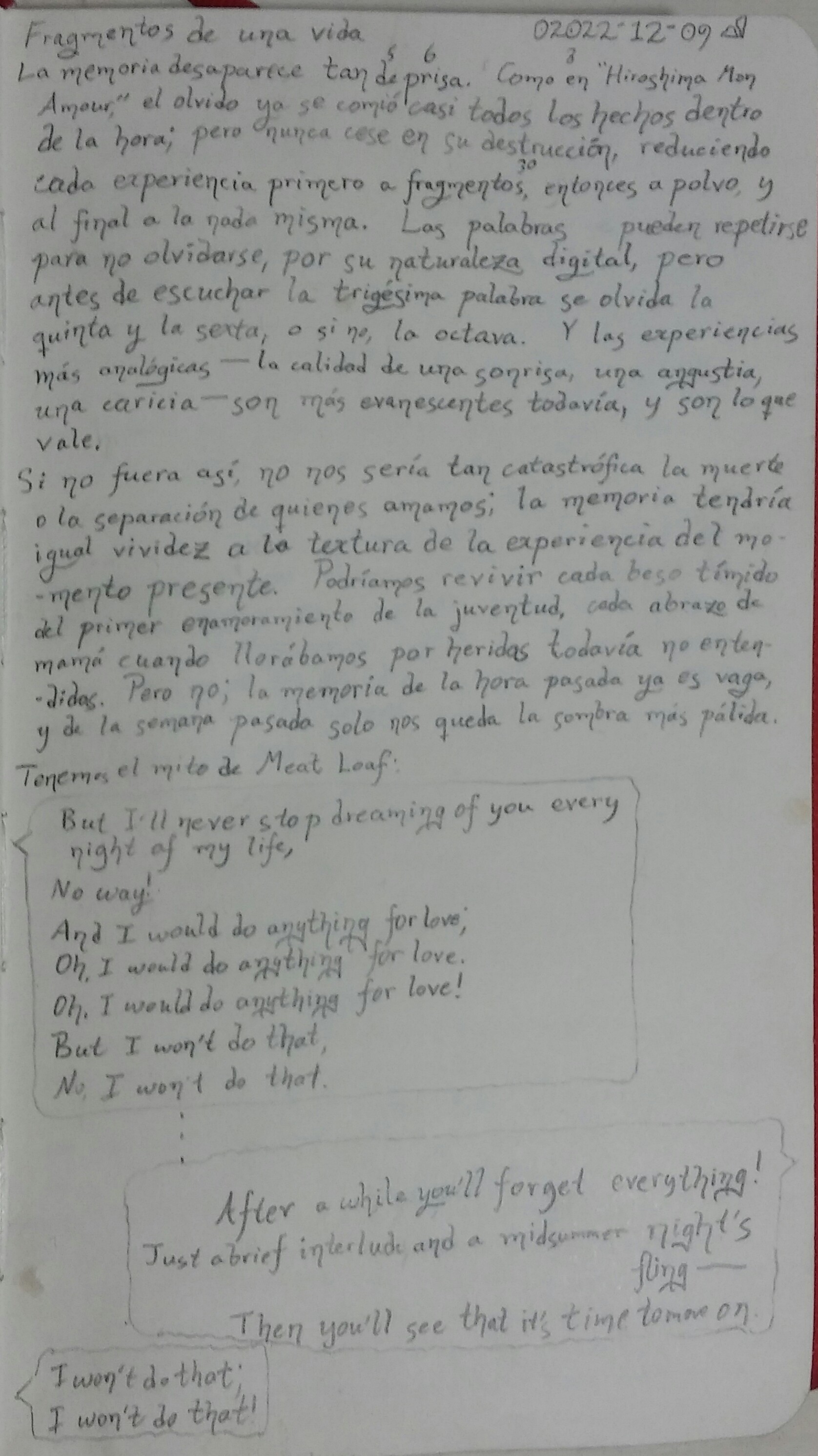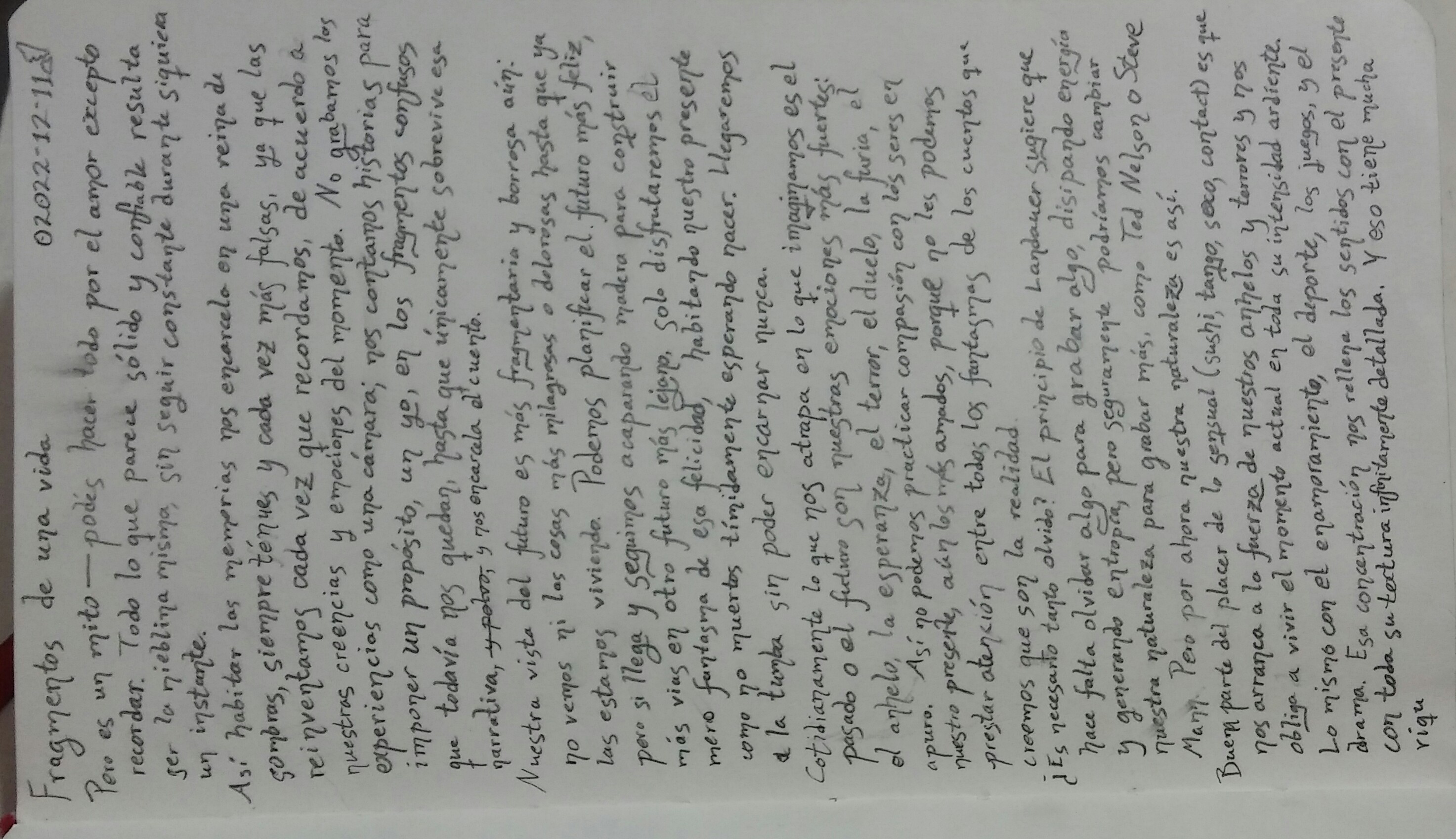

This is a rough draft and, appropriately, itself fragmentary; the translation is more so, in part because the Spanish phraseology seems overformal in English.
Memory disappears in such a5 hurry6. As in8 Hiroshima mon amour, forgetting has already eaten almost all the facts within the hour; but it never ceases its destruction, reducing each30 experience first to fragments, then to dust, and at last to pure nothingness. By their digital nature, words can be repeated so as not to be forgotten, but before hearing the thirtieth word the fifth and sixth are forgotten, or if not, the eighth. And more analog experiences — the quality of a smile, an anguish, a caress — are still more evanescent, and they are the experiences that matter.
Were it not so, it would not be so catastrophic when the ones we love die or separate; memory would have vividity equal to the texture of the experience of the present moment. We could relive every timid kiss of the first love of youth, every mother's hug when we cried from injuries we did not yet understand. But no; the memory of an hour ago is already vague, and of last week only the most pallid shadow remains to us.
We have the myth of Meat Loaf [not translated, see above]
But it is a myth — you can do everything for love except remember. Everything that seems solid and trustworthy turns out to be fog itself, without remaining constant during even an instant.
So inhabiting memories imprisons us in a kingdom of shadows, always tenuous and more and more false, since we reinvent them every time we remember, according to our beliefs and emotions of the moment. We do not record experiences like a camera; we tell ourselves stories to impose a purpose, an "I", on the confused fragments that still remain to us, until only that narrative survives, and imprisons us in the story.
Our view of the future is even more fragmentary and blurry: we do not see the most miraculous or painful things until we are already living them. We can plan the happiest future, but if it arrives and we continue hoarding wood to build more roads in a future further off, we will only enjoy the mere ghost of that happiness, living our present like the undead timidly waiting to be born. We will arrive at the tomb never having incarnated.
Usually what traps us in what we imagine to be the past or the future are our strongest emotions: longing, hope, terror, grief, fury, hurry. Then we cannot practice compassion with the beings in our present, even those we love most, because we cannot pay attention among all the ghosts of the stories we believe to be reality.
Is so much forgetfulness necessary? Landauer's principle suggests that we must forget something to remember something, dissipating energy and generating entropy, but surely we could change our nature to remember more, like Ted Nelson or Steve Mann. But for now such is our nature.
Much of the pleasure of the sensual (sushi, tango, sex, contact improv) is that it rips us by force out of our longings and terrors and forces us to live the present moment in all its burning intensity. The same with falling in love, sports, games, and drama. This concentration fills up our senses with the present with all its infinitely detailed texture. And this has great ric
Perhaps I will finish it.